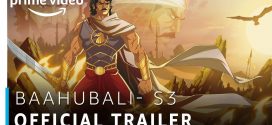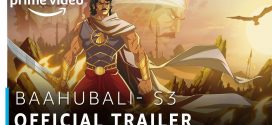Moving ahead in his quest to discover the real Hindustan aka BharatVarsh aka Bharat aka India and its culture and its origin, Pt. Nehru wrote some chapters about Republics and Kingdoms.
This episode explores the possible situations happened in those days. Actually we need a person to take decisions and manage the things in any level of group. Due to the same reasons the group of farmers started electing a leader from amongst them. The leader also pays his duties like all other mates and he have added responsibility of distribution of resources amongst group members. But actually power have its own pros and cons. In order to do management, the leaders were given more powers and later they took them over. So, over the period of time the leader’s place became something like king’s throne and the son of the leader would be the next successor of the same!
There were several republics started being formed those days as well. In a republic a group of people were chosen for the administrative and other works. For example there was a republic called Lichchhavi near Pataliputra (capital of Magadh). Again to administer the entire group there used to be a leader from those and it was known as Nayak (in case of Lichchhavi republic). An assembly of wise and clever people used to chose the Nayak. It was pretty much like modern administration/government in various republics we see today.
We see there is a clear writing behind the script. As the thoughts of the author are consolidated the script writer seems found it easy to put them together in very comprehensive manner here. The commentary by Roshan Sheth is a positive point of the episode. In addition the makers used his senses in preparing sets and make the stuff more realistic, rather than fancy and fantasized (which we see in most epics these days).
Though you may find the carts etc. are using some modern day tools but you may ignore the same.
Moving ahead the stuff about the 16 Major Republics including Magadh, Videh, Kashi and others. Here the director shows the map for easy reference.
Be it a republic or a kingdom but most of the segments of villages and society were the parts of them. We can say a well managed and co-ordinated social segments were form till the time of Buddha arrived. And yes any type of ruling system needs money and other resources for the management, and tax on various stuff is one of the primary source for the same!
During those times most of the goods were transferred through carts or small or big caravans from one place to the another. In earlier times, the businessmen were easily transferring their goods from one place to the another by paying the tax to the kingdom they live at. The king or the management and leader of republic took responsibility of easy going safety for the businessmen and their interest in the favor of the same.
Though with the time the kingdoms and republics started looking to find more ways to earn more resources. Which resulted into dispute between them and even resulted into fights and then war!
In the first segment of the episode the director shows such a dispute and its after effects. A businessman was going from one place to the another. He was not a wealthy one. He paid his taxes before moving. Now in the way he was stopped by people from another kingdom and he was asked to pay the tax. When asked for the explanation of why he needs to pay the same, the businessman was answered that as he is using the way which was passing through the boundary of the different kingdom, he needs to pay them as well. The young son of the businessman tried protest which resulted into brutal killing of him!
When the news was heard by the leader of the businessman’s kingdom he got very angry. He decided to teach the other kingdom a lesson. The discussion in the assembly is worth watching. How the person in power behaves, how wise man see both the sides of a coin, how a priest tries to compare the scenario from similar stuff written in holy books etc… It is the clash of ideology basically. And the debate here is worth to watch. In the previous scene we found some below the level acting, but here in this scene we see almost all actors are convincing.
The next segment explores the activities of the assembly of a republic. As it is made of several members, till all of them meet it was not possible for them to take a decision. The Nayak of the republic – Mahanama – was unable to come to any decision due to the absence of all assembly members. (He belongs to the republic whose men killed that businessman’s son). Don’t we see such situations in modern days also!?
The debate at the assembly of republic is also worth watching. Overall the episode tries exploring pros and cons of both, a republic and a kingdom, as the ruling management segment of a society.
The episode also explores the facts that when there is a clash between two states/kingdoms/countries, the innocent people and the trade between both the state is affected the most. What would be the result of the clash between the kingdom and the republic in this particular case? You have to watch the episode to know that.
The background music is very good and it adds to the positives of the episode. There are some below average actors but rest of them fills the blank. The dialogs are first rate. The efforts paid for research work is also seen on the screen. The stuff is for those who can keep an open mind and have guts to visit the history neutrally, and yes to learn something from the same.
Overall an episode worth to watch. It is much much better than a lot of time-pass (or better to say time-wasting) stuff we see these days. You surely can go for it.
 ThinkerViews – Views And Reviews Personal views and reviews for books, magazines, tv serials, movies, websites, technical stuff and more.
ThinkerViews – Views And Reviews Personal views and reviews for books, magazines, tv serials, movies, websites, technical stuff and more.



